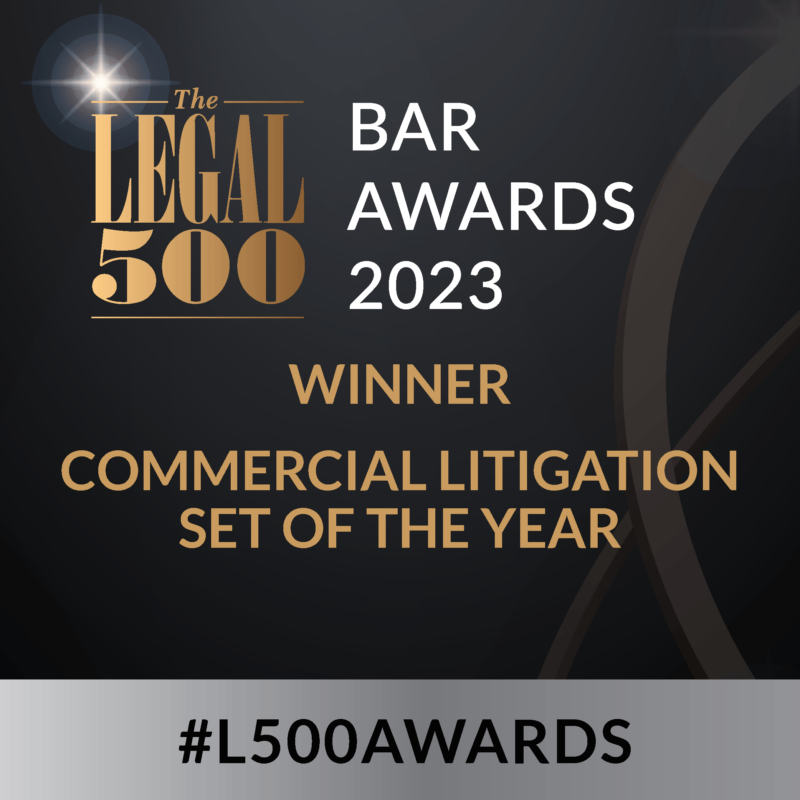Lisa Lacob resists application to set aside order enforcing SHIAC Arbitration Award
Lisa Lacob, instructed by Jonathan Cary and Amelia Payne of RPC LLP, has succeeded in opposing an application to set aside an order enforcing an RMB 188,072,095.57 (c.£22.3 million) arbitration award made by the Shanghai International Arbitration Centre (SHIAC) and a related freezing order over the assets of Mr Kei, the second respondent to the arbitration.
Lisa acts for the Claimant in the arbitration, Hua She Asset Management (Shanghai) Company Limited. The dispute giving rise to the SHIAC Award arose out of a contract entered into between Hua She and Beijing Yaolai Investment Company Limited. Mr Kei, the majority shareholder of Beijing Yaolai, had guaranteed the obligations of Beijing Yaolai under that contract. The Award was made on 26 October 2020. Following attempts by Hua She to enforce the Award against Mr Kei in the BVI and Hong Kong, Hua She identified substantial assets it believes to be owned by Mr Kei in England, including valuable properties in Knightsbridge and Belgravia. By an Order of Knowles J dated 16 July 2021, Hua She obtained leave to enforce the Award and a domestic freezing order over Mr Kei’s assets pending enforcement. Enhanced and unusual asset disclosure orders were also obtained against Mr Kei in October 2021.
Mr Kei applied to set aside the orders under s.103(2) of the Arbitration Act 1996 on the primary basis that he did not know of the arbitration and that Hua She had concealed from both the arbitration tribunal, and subsequently from the Shanghai Second Intermediate People’s Court, who had dismissed his first application to set aside the Award, that the debt in issue had been settled by share transfers from a subsidiary of Beijing Yaolai to an associate of Hua She. Hua She argued that Mr Kei was attempting to re-run substantially the same arguments it had made before the Shanghai Court. The point was taken that, although the Shanghai Court had determined whether Mr Kei was properly represented in the arbitration under SHIAC’s Rules, it had not determined the factual issue of whether he knew of the arbitration and that the double concealment of evidence was an exceptional factor (within the meaning of that term in Minmetals Germany GmbH v Ferco Steel Ltd [1999] CLC 647, per Colman J at p.660-661).
In a judgment handed down on 25 March, Julia Dias QC (sitting as a Deputy High Court Judge) dismissed Mr Kei’s application. In particular, the Judge accepted Hua She’s submissions that the court should not adopt too narrow a focus when assessing whether the same or substantially the same issues had been raised before the Shanghai Court, that the Shanghai Court had at least implicitly found that Mr Kei had actual knowledge of the proceedings sufficient to support an issue estoppel and that, in any event, the weight of the evidence suggested that he did know about those proceedings. As to whether Mr Kei was issue estopped from raising his concealment argument, alternatively whether taking the point when it could have been taken earlier was an abuse of process, the court found that to the extent that the specific issue of settlement/set-off was not raised before the Shanghai Court, it could and should have been. Further, Mr Kei had failed to establish as a matter of fact that there was any relevant concealment by Hua She. Accordingly, there were no circumstances which could be categorised as exceptional.
The judgment underscores an award creditor’s prima facie right to recognition and enforcement of a New York Convention Award and the high bar for setting aside a foreign arbitral award where the award has been unsuccessfully challenged at the place where the arbitration is seated. Critically, it is not only issues which were raised before the supervisory court but also issues which should have been raised before the supervisory court which are capable of founding an issue estoppel or giving rise to an abuse of process defence to a set aside application.
The judgment is available here.








